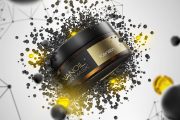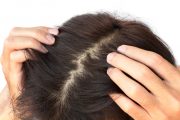It is said that fenugreek rubbed in the scalp is able to speed up hair growth and prevent baldness. Is there any truth to it? It is time to take a closer look at the fenugreek and its effects on hair.

Fenugreek is the subject of discussion on numerous websites and blogs. It seems like there is no end to the discussion on whether it actually makes any sense to use it for hair care.
- Supporters of treatment with fenugreek emphasize the fact that it is the best natural way to gain strong, healthy hair that grows faster and falls out less.
- Opponents of fenugreek approach the subject with a pinch of skepticism and claim that there are many effective methods to strengthen hair.
Before we stand on one side or the other, we should take a closer look at the actual properties of fenugreek. We know that it was used for ages though at first mostly in traditional medicine. Later on, there was a time that we forgot about it for a little while in order to rediscover its precious properties nowadays and this time around use it for hair care.
Fenugreek. What is it?
You hear ‘fenugreek’ and you think… Exactly! Hardly anyone knows what fenugreek is even though it became so popular when it comes to at-home haircare.
It is quite a common plant that looks a bit like a clover. Fenugreek is also called bird’s foot or Greek hay though it is cultivated not just in the Mediterranean terrains. Its fruits have long pods with a spicy smell and the most valuable here is the seeds because this is the part that is used in medicine and conditioning.
The interesting thing is that fenugreek seeds are a source of flavonoids, alkaloids, coumarins, vitamins C, B6, A, folic acid, saponins, and minerals (such as calcium, iron, magnesium, phosphorus, potassium, silicon, sodium, zinc), but also proteins, healthy fatty acids, and essential oils.
Fenugreek properties
The fact that fenugreek contains so many nutrients is not the only thing about this plant that makes it great for use in hair care. The oil obtained from its seeds has, among many, anti-inflammatory action so it can help eliminate scalp problems and support dandruff treatment. On the other hand, the content of phospholipids in fenugreek stimulates protein synthesis so it supports cellular renewal.
How does fenugreek work on hair?
Fenugreek is usually used in hair care but the use of fenugreek seed oil for problematic skin is also a good idea. However, we should focus on hair for now because in this department this oil has way more possibilities:
- inhibits excess hair loss,
- supports hair growth and makes hair fuller,
- prevents greasy roots,
- nourishes and strengthens the hair on the inside,
- improves general hair and scalp condition,
- makes strands soft, bouncy, and glossy.
The use of fenugreek on hair
Obviously of the significance is also the form used to apply this plant to the hair. Occasional use of the conditioner with fenugreek where it makes for one-hundredth of a percent may not be the best solution.
It is definitely more recommended to use hair rinse with fenugreek. You can prepare it yourself using brewed seeds (for 1 tablespoon of seeds use 150 ml of hot water) or you can get one from a store. It is important to rub it in on a regular basis on the scalp – daily or every other day. It is best to start with the use of fenugreek before every hair wash because then it is easier to make it into the habit.



